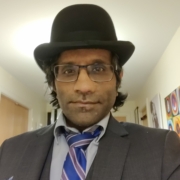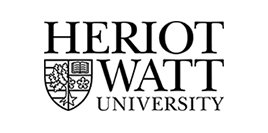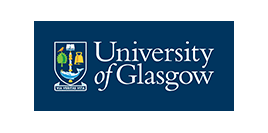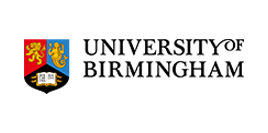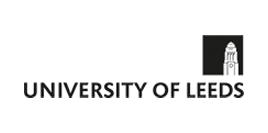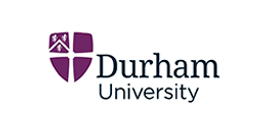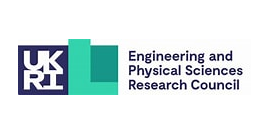Meet the TransiT Team
Principal Investigators
Phil Greening (Joint Programme Director)
David Flynn (Joint Programme Director)
Co-Investigators
Adam Gripton
Ahmad Taha
Bernadin Namoano
Blair Archibald
Christa Searle
Christina Latsou
Clive Roberts
Cristina Tealdi
David Cebon
David Corne
Dezong Zhao
Dhanan Utomo
Dimitrios Pezaros
Gregory Marsden
Guy Walker
John Easton
John Erkoyuncu
Kate Pangbourne
Kate Sang
Krishnan Venkateswaran
Luciana Blaha
Maryam Farsi
Michele Sevegnani
Muffy Calder
Muhammad Imran
Nishtabbas Rehmatulla
Paul Harvey
Simon Shepherd
Theodore Lim
Tristan Smith
Xiaoxiang Na
Yen Tran
Zhongbei Tian
Joe Bloggs
Support Staff
Programme Manager: Janey Andrews
Programme Coordinator: Andrew Smith
Finance Manager: Donna Grant
Contracts Manager: Chi Jack-Osimiri
Project & Industry Engagement Manager: Tushara Kodikara
Project & Industry Engagement Manager: Anne-Mari Gillespie
Project & Industry Engagement Manager: Jie Zhao
Project Officer: Louise MacMaster
Stakeholder Engagement Support: Nilton Chan
Researchers
Alan Logan
Alex Foote
Chen Liu
Chongfeng Wei
Daniel Mitchell
David Cole
David Kirkwood
Filip Holik
Harry Durham
Heather Steele
Irfanullah Khan
Ismail Demirler
Jamie Blanche
Jiabao Pan
Jianglin Lan
Jo-Ann Pattinson
Joseph Preece
Meg Bartholomew
Mohammad Alquraan
Muhammad Shujaat Mubarik
Ricardo Almeida
Sandy Hassan
Siti Fariya
Stefanos Evripidou
Susmoy Das
Wenjing Zhao
Wenshuo Tang
Xicheng Li
Yanis Boussad
Zahra Ghorbani
Zoe O’Connor
Alumni
Zoe O’Connor
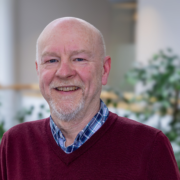 Phil Greening
Phil Greening
Joint Programme Director
Professor Phil Greening is the Programme Lead for the TransiT Hub. He has significant industrial experience in logistics and freight modelling and is a Director of The Centre for Sustainable Road Freight and leads the Centre for Logistics and Sustainability at Heriot-Watt University’s Edinburgh Business School in Edinburgh. He leads a strong team with unique capability in the use of agent-based modelling for strategic investment planning of infrastructure.
Heriot-Watt University
 David Flynn
David Flynn
Joint Programme Director
Professor David Flynn is the Joint Programme Lead of TransiT alongside Prof. Phil Greening. He has won several awards for research within the field of human-computer interactions and has established patents and created new spinoff companies from the research undertaken. He is the academic lead of the UK’s largest Whole System Demonstrator project, ReFLEX. He is an advisor to the UK and Scottish Governments on digitalisation for the energy sector and hydrogen integration for transport.
University of Glasgow
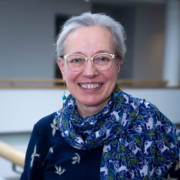 Janey Andrews
Janey Andrews
Programme Manager
Dr Janey Andrews is Programme Manager for TransiT. She has extensive experience in the management of impactful research nationally and internationally. Alongside TransiT she has been managing the Centre for Sustainable Road Freight and the Centre for Logistics and Sustainability at Heriot-Watt University’s Edinburgh Business School.
Heriot-Watt University
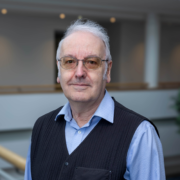 Andrew Smith
Andrew Smith
Programme Coordinator
Andrew Smith has been a research coordinator for EU and UKRI-funded research projects since 2006 and is currently with the Centre for Logistics and Sustainability at Heriot Watt University. His early career was in international logistics with what was then called Overseas Containers Ltd (later P&O containers), then at a New Zealand Crown Research Institute. Prior to joining Heriot-Watt he was in the Centre for Digital Built Britain (CDBB) at Cambridge University.
Heriot-Watt University
Donna Grant
Finance Manager
Donna Grant, TransiT’s Finance Manager, has over 30 years Research Services Post-award experience in the HEI sector. Donna works at Heriot-Watt University with several members of the TransiT team, providing critical support around funding management to ensure smooth programme operations.
Heriot-Watt University
Tushara Kodikara
Project & Industry Engagement Manager
A dynamic leader with over a decade of experience in supervising projects and programmes in the public and private sectors. I possess strong analytical skills and am adept at covering a range of operational, technical, and strategic roles. With my innovative and enthusiastic approach, interpersonal skills, critical thinking, managing conflict and negotiating abilities. I remain stakeholder-focused, with a wide range of managerial expertise, from project/programme, finance and budgeting, information governance, to policy development, technical and business management process modelling.
Heriot-Watt University
 Anne-Mari Gillespie
Anne-Mari Gillespie
Project & Industry Engagement Manager
Anne-Mari Gillespie has many years experience working in Finance Operations for a large energy company prior to completing a BSc (Hons) degree in Renewable Energy Systems and Environmental Technologies. Since graduating in 2020 she has worked in innovation space, promoting collaboration between industry and academia.
University of Glasgow
 Jie Zhao
Jie Zhao
Project & Industry Engagement Manager
University of Glasgow
 Louise MacMaster
Louise MacMaster
Project Officer
Louise is a highly experienced Executive Assistant with over 20 years of dedicated service in the Higher Education sector. Known for her exceptional organizational skills and proactive mindset, Louise has consistently supported senior executives in achieving their goals.
University of Glasgow
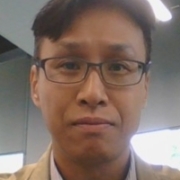 Nilton Chan
Nilton Chan
Stakeholder Engagement Support
Dr Chan has over 25 years of proven track record in delivering projects to some of the world’s leading energy organisations. He is a qualified chartered engineer having a bachelor degree in Aeronautical Engineering and a doctorate degree in Turbulent Combustion. He is a keen active individual in promoting and delivering sustainable low carbon developments.
Heriot-Watt University
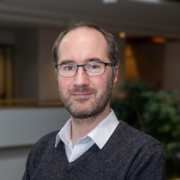 Adam Gripton
Adam Gripton
Co-Investigator
Dr Adam Gripton is an Assistant Professor in the Centre for Sustainable Road Freight (SRF) and is responsible for development of mathematical models and algorithms for green logistics operations. He joined Heriot-Watt University in 2018 after spending six years at QinetiQ as a maritime software engineer in in the fields of complex system analysis and design for resilience.
His research to date has centred around mathematical models and simulation, with a PhD in pattern classification under missing data (2011) followed by further research experience in uncertainty quantification and inverse methods.
Heriot-Watt University
 Ahmad Taha
Ahmad Taha
Co-Investigator
Ahmad Taha is a lecturer in Autonomous Systems and Connectivity at the James Watt School of Engineering, University of Glasgow, with over a decade of experience across esteemed higher education institutions spanning Egypt, the UK, and China. His research journey centres on Cyber-Physical Systems (CPSs) for energy management and digital healthcare. Dr. Taha has authored/co-authored publications showcased in reputable venues and has contributed as a Principal Investigator/Co-Investigator to research grants supported by research councils and private sector investments, including the Scotland 5G Centre for the 5G Urban Testbed project and EPSRC. Dr. Taha has earned recognition from the Royal Academy of Engineering through the Global Talent scheme, he is an inaugural member of the UK Young Academy and an academic advisor to the Commonwealth Scholarship Commission, and he sits on the Glasgow Retrofit Advisory Group (RAG), advising on CPS and digital twin technology to improve the energy efficiency of Scottish social housing. Dr. Taha holds the title of Fellow of Advanced Higher Education (FHEA) and is among the pioneering UKCGE recognised Associate Supervisors.
University of Glasgow
Bernadin Namoano
Co-Investigator
Bernadin earned his MSc degree in Computer Science in 2013 from Polytechnique University, France. Before his academic tenure at Cranfield University starting in 2017, he was a software engineer in Paris, where he specialized in architectural design for big data, in-depth time series data analysis, and the complete software lifecycle. His PhD, sponsored by EPSRC and Unipart-rail/Instrumentel, focused on condition monitoring for railway assets, culminating in earning the prestigious EPSRC Doctoral Fellowship Prize. Bernadin’s research primarily revolves around the development of advanced architectures and algorithms for digital twin technology. He further explores meta modelling, ontologies, and machine learning applications within this domain. Currently, he holds a Research Fellow Prize position at the Centre of Digital Engineering and Manufacturing at Cranfield University, where he leads initiatives on designing, implementing, and testing innovative methods and tools for digital twin ecosystem enhancements.
Cranfield University
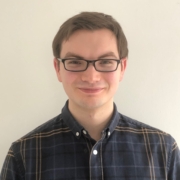 Blair Archibald
Blair Archibald
Co-Investigator
Blair is a lecture in the School of Computing Science at the University of Glasgow. He is interested in how we can use (formal) computational models to understand and reason about complex systems. A particular interest is how new modelling techniques and expressive languages can increase the accessibility of modelling without sacrificing formal rigour.
University of Glasgow
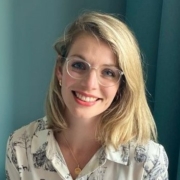 Christa Searle
Christa Searle
Co-Investigator
Christa Searle is an assistant professor in operational research and analytics at the Edinburgh Business School, Heriot-Watt University, and forms part of the leadership team for the Centre for Sustainable Road Freight. Her research interests lie at the intersection of (agent-based) simulation modelling and operational research techniques to address challenges related to logistics, sustainability and human behaviour.
Heriot-Watt University
 Christina Latsou
Christina Latsou
Co-Investigator
Christina Latsou is a Lecturer in Smart Manufacturing at the Centre for Digital Engineering and Manufacturing at Cranfield University. Christina completed her PhD in ‘Automated Generation of Reliability Models’ from Loughborough University in 2019. Her research focuses on digitally transforming manufacturing systems and processes, optimising complex systems, and system of systems to improve performance, productivity, and resilience across manufacturing, defence, transport, and healthcare sectors. She has been involved in several collaborative projects with companies including Babcock International Group, BAE Systems, Siemens Energy, and the Ministry of Defence. Christina is an Associate Fellow of the Higher Education Academy (AFHEA) and a member of the Institution of Engineering and Technology (MIET).
Cranfield University
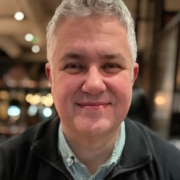 Clive Roberts
Clive Roberts
Co-Investigator
Professor Clive Roberts is Executive Dean for the Faculty of Science at Durham University. Clive’s research interests are focused on improving the performance of engineering systems, with a particular focus on transport and critical infrastructure. His specific academic interests cover a range of interdisciplinary areas including sensing and data analysis, complex system simulation, control systems, energy and sustainability, risk and safety assessment, AI and machine learning, cybersecurity and systems engineering. He has an extensive knowledge of railway signalling and control, power and traction, and operations and maintenance. He is a Council Member and Fellow of the Institution of Railway Signalling Engineers (FIRSE) and Fellow of the Institution of Engineering and Technology (FIET).
Durham Univeristy
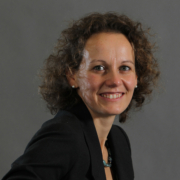 Cristina Tealdi
Cristina Tealdi
Co-Investigator
Cristina Tealdi is currently an Associate Professor of Economics at Heriot-Watt University’s Edinburgh Business School (Edinburgh, UK) and an IZA (Institute for Labour Economics) Fellow. She received her PhD in Economics from Northwestern University in 2011, under the supervision of Prof. Mortensen (2010 Nobel Prize winner in Economics).
Her main research interests include labour economics and economics of migration. Specifically, her research activities focus on the theoretical (search and matching models) and empirical study of the economic effects of labour market reforms and the evaluation of the impact of policy interventions.
Heriot-Watt University
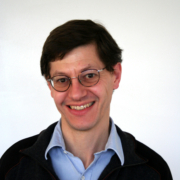 David Cebon
David Cebon
Co-Investigator
David Cebon has been employed by the University of Cambridge since 1985, first as a lecturer and, since 2006, as Professor of Mechanical Engineering. His research covers the mechanical, civil, and materials aspects of road transport engineering. He is Director of the Cambridge Vehicle Dynamics Consortium (CVDC) and the Centre for Sustainable Road Freight (CSRF). Professor Cebon is a Fellow of the Royal Academy of Engineering and the Institution of Mechanical Engineers.
Professor Cebon has authored or co-authored many papers on dynamics, control, safety, manoeuvrability and fuel consumption of heavy vehicles. He has also published on road and bridge response and damage and the micromechanics of road materials. He serves on the editorial board of 4 international journals.
Prof Cebon has received several awards from the IMechE, including the Edwin Walker Prize for Computing and Data Communications in 1988; the Gresham Cooke Prize in 1992, the Crompton-Lanchester Medal in 1996 and 2005, the Thomas Hawksley Gold Medal in 1996, the Safety Award for Mechanical Engineering in 2005, and the IEEE ITSS Presidential Prize for Sustainability in Transportation in 2022. He was also the first non-US recipient of the L. Ray Buckendale Award of the Society of Automotive Engineers for his work on vehicle-road interaction. He has been the Principal Investigator of eight major EPSRC grants and numerous other projects from sponsors including Innovate UK and from EU and US sources.
University of Cambridge
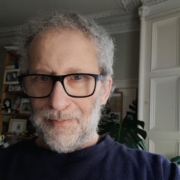 David Corne
David Corne
Co-Investigator
Prof. David Corne is a researcher and industry practitioner at the intersection of artificial intelligence, optimization and sustainability, with a particular focus on decarbonization in transport and energy systems. Working with some outstanding teams over years, he has made substantial academic contributions in the areas of combinatorial, large scale and multi-criteria optimization, and his knowledge-transfer work has co-received a range of awards and led to two spinouts.
Heriot-Watt University
Dezong Zhao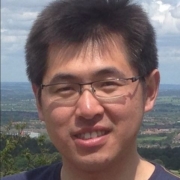
Co-Investigator
Dezong Zhao is a Reader of Autonomous Systems with the University of Glasgow and a Turing Fellow with the Alan Turing Institute. Before moving to Glasgow, he was a Research Associate and then a Lecturer at Loughborough University. He received the PhD degree in Control Engineering from Tsinghua University in 2010; and the BEng and MSc degrees in Control Engineering from Shandong University, in 2003 and 2006, respectively. His research interests include Connected and Automated Vehicles, Robotics, Machine Intelligence and Control Engineering. He was awarded an EPSRC Innovation Fellowship in 2018 and a Royal Society-Newton Advanced Fellowship in 2020.
University of Glasgow
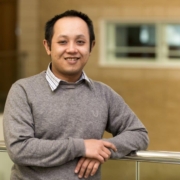 Dhanan Utomo
Dhanan Utomo
Co-Investigator
I am an operational research specialist with a focus on applying agent-based modelling and simulation to optimize logistics and supply chains. I’m particularly interested in using these methods to identify the most cost-effective ways to decarbonize logistics systems, particularly in urban long-haul operations. I have extensive experience in this field, having been heavily involved in several innovative UK projects focusing on last-mile delivery using electric and autonomous vehicles. These projects allowed me to develop sophisticated agent-based modelling techniques that are making significant contributions to the field.
My research also delves into how real-world actors make decisions. I’m developing innovative methodologies like scenario-based questionnaires and role-playing games to elicit these decision rules. Currently, I’m testing these methods within Indonesia’s agri-food supply chain.
Furthermore, I am the Principal Investigator in a project funded by Transport Scotland. This project leveraged my expertise in agent-based modelling to identify the minimum viable network of infrastructure needed to decarbonize long-haul transportation in Scotland.
Heriot-Watt University
 Dimitrios Pezaros
Dimitrios Pezaros
Co-Investigator
Dimitrios Pezaros is (full) Professor of Computer Networks and director of the Networked Systems and Cyberdefence laboratories in the School of Computing Science at the University of Glasgow, where he currently holds the Dstl & CINIF / RAEng Research Chair in Digital Resilience for Critical National Infrastructure. He has received funding in excess of £20m for his research from UK, European, and international funding agencies and industry, and has published widely in the areas of computer communications, network management, and network resilience. His research is focusing on assuring the operation of future networked infrastructures through the exploitation of closed-loop and machine-learning-based monitoring and control algorithms, and using programmable networking and function virtualisation technologies. Prof Pezaros holds BSc and PhD degrees in Computer Science from Lancaster University, UK. He is a Chartered Engineer, a fellow of the BCS and IET, and a Senior Member of IEEE and ACM.
University of Glasgow
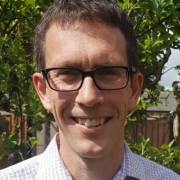 Gregory Marsden
Gregory Marsden
Co-Investigator
Greg Marsden is a Professor in Transport Governance at the Institute for Transport Studies at the University of Leeds. He joined Leeds after a two year period as specialist adviser to the UK Parliamentary Transport scrutiny committee. His research interests relate to understanding decision-making processes within local and national government, issues of governance and acceptability.
University of Leeds
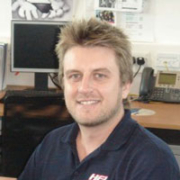 Guy Walker
Guy Walker
Co-Investigator
I am a leading academic in the Human Factors and Sociotechnical Systems discipline with a strong track record in teaching, research, and consulting. I am involved in high-value research projects including the Palace of Westminster Restoration and Renewal Programme, where I am innovating Sociotechnical Construction, and the Centre for Sustainable Road Freight with the University of Cambridge. I am the author/co-author of 135 journal papers and 19 books, including my discipline’s leading methods text book. My published work has been cited 6033 times and my Scopus h-index is 43 (joint 12th out of 6251 within Heriot-Watt University, 5th highest in my School). My research has appeared on the Discovery Channel, Channel 4, BBC, and in a wide variety of other national and international media. In addition to research I currently have a role as my School’s Director of Learning and Teaching. I have been awarded the Graduates Prize for the student experience, a Teaching Excellence Award for Global Team, the President’s Medal from the Chartered Institute for Ergonomics and Human Factors, and the Principal’s Research Impact and Engagement (PRIME) Award. I am a member of the Royal Society of Edinburgh’s (RSE) Young Academy, a Fellow of the Chartered Institute of Ergonomics and Human Factors (FIEHF), a Fellow of the Higher Education Academy (FHEA) and on the Editorial Board of the international journal Ergonomics. I am also author of a paper that appeared in National Geographic explaining how to blow up the Death Star!
Heriot-Watt Univeristy
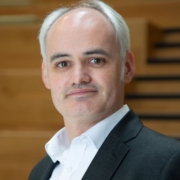 John Easton
John Easton
Co-Investigator
Dr John Easton is an Associate Professor in the University of Birmingham’s School of Engineering, specialising in topics related to data and digital systems for rail. A firm believer in the importance of building strong links to industry, John is a past chair of the IET’s railway technical network, and currently chairs the Rail Engineers Forum, a group that links the railway special interest groups of the main Professional Engineering Institutions.
University of Birmingham
 John Erkoyuncu
John Erkoyuncu
Co-Investigator
John Ahmet Erkoyuncu is Professor in Digital Engineering and Head of the Centre for Digital Engineering and Manufacturing at Cranfield University. His research interests include: digital twin, augmented reality, and digitalisation of through-life engineering. He has a track record in leading research and education worth over £12M through EPSRC (most recent – PI: EP/R013950/1, Co-I: EP/R032718/1), Innovate UK, and EU. He has published over 160 scientific papers. John is Co-Chair of the Through-life Engineering Services Council, Community Council Member of the Digital Twin Hub, Chartered Engineer with IET, Fellow of Higher Education Academy, and Associate Fellow of CIRP. John is the Course Director for the MSc in Digital and Technology Solutions and Programme Director for the MSc in Management and Information Systems.
Cranfield University
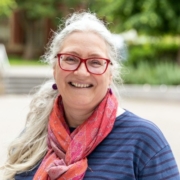 Kate Pangbourne
Kate Pangbourne
Co-Investigator
I am an interdisciplinary resaercher with an academic background spanning social and environmental sciences, humanities and computer science. I am currently the Governance Theme Lead for the multi-institution Energy Demand Research Centre, co-lead of the ITS Social and Political Sciences Research Group and a Deputy Director of the Leeds Social Sciences Institute. My work on transport governance and smart mobility investigates the power relations, structures, scales and processes involved in strategic vision and implementation of transport policies, drawing on notions of state (spatial) projects, multi-level governance, socio-technical transitions and collaborative advantage. My work on behaviour change engages with behavioural science, persuasion and mobile technologies.
Prior to returning to academia in 2003 I spent around a decade working for Scottish Natural Heritage (now known as Nature Scot), the governance body for the conservation of nature in Scotland. As post-doc at the University of Aberdeen (where I did my PhD) I worked on a variety of projects funded by different sources, including CAP-IRE (EU FP7), PolicyGrid II (ESRC/Digital Social Research), and MyWay (EU FP7), thematically linked through work investigating behaviours of different types and their social, distributional and economic impacts. I joined the Institute for Transport Studies in 2016 with a prestigious five-year EPSRC-funded Living with Environmental Change personal fellowship. I am a former Chair of the Transport Geography Research Group of the Royal Geographical Society (with IBG), and an Associate Editor of the Journal of Transport Geography.
University of Leeds
 Kate Sang
Kate Sang
Co-Investigator
Kate Sang is a Professor of Gender and Employment Studies with expertise in creating accessible and inclusive work and workplaces. Kate has a particular interest in gender, disability, neurodiversity and intersectionality. With an emphasis on co-design, Kate’s research has created the evidence bases for better work in a range of occupational contexts. Kate is also committed to transferring this knowledge to addressing the climate crisis, to ensure interventions do not (re)produce existing or new inequalities.
Heriot-Watt University
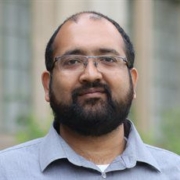 Krishnan Venkateswaran
Krishnan Venkateswaran
Co-Investigator
Krishnan is an Assistant Professor of Railway Systems at the Birmingham Centre for Railway Research and Education. He has extensive experience and experience in signalling systems and the simulation of railway control and operational environments, and supports the delivery of teaching and training at BCRRE.
He has previously supported organisations including RAIB, Network Rail and CAF integrate digital systems and knowledge to develop new capabilities, including the development and validation of a new continuous train protection system, benchmarking it against existing systems, through to carrying out feasibility studies into the use of cost-effective, portable, ETCS Level 2 units for charter trains, reducing the cost and risks associated with national fitment of ERTMS.
University of Birmingham
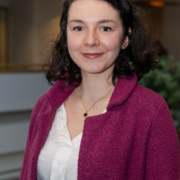 Luciana Blaha
Luciana Blaha
Co-Investigator
Luciana’s research investigates Intelligent Automation systems (including AI, RPA and chatbots) and their impact on organisational behaviour, reuniting findings from science and technology studies, business management and computing science. Her work explores emerging behaviours and understandings of technology from the perspective of stakeholders within and outside the organisation.
She has delivered guest lectures, seminars and conference presentations for audiences in the UK, Dubai, Taiwan, US and Australia in the areas of Intelligent Automation, Management, AI and Qualitative Research Methods. Currently, her work focuses on the areas of organizational behaviour and Intelligent Automation systems, and AI stakeholder management for good.
Heriot-Watt University
 Maryam Farsi
Maryam Farsi
Co-Investigator
Dr Maryam Farsi is a Senior Lecturer in Engineering Optimization at Cranfield University’s Centre for Digital Engineering and Manufacturing. With over 15 years of experience, her research specializes in Systems Engineering, Cost Engineering, and achieving Engineering Net-Zero. Maryam applies advanced stochastic modelling, dynamic simulation, and multi-objective optimization to improve the efficiency, sustainability, and effectiveness of complex engineering systems. Since 2018, her work has focused on sustainability in Industry 4.0 and Industry 5.0, leveraging digital technologies in manufacturing and digital twins for smart cities. Maryam is a Fellow of the Higher Education Academy (FHEA) and serves on the Society for Cost Analysis and Forecasting (SCAF) committee. She has collaborated on projects across aerospace, manufacturing, defence, transport, and healthcare with industry leaders such as Rolls-Royce, Siemens Gas Turbines, BAE Systems, BABCOCK International, and Network Rail.
Cranfield University
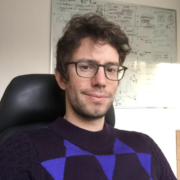 Michele Sevegnani
Michele Sevegnani
Co-Investigator
I am Senior Lecturer at the School of Computing Science. I received a PhD in Computing Science from the University of Glasgow and an MSc in Bioinformatics jointly from the universities of Edinburgh and Trento (Italy). I previously held positions at the University of Glasgow as Research Fellow in the Science of Sensor Systems Software (S4) EPSRC programme grant and as EPSRC Doctoral Prize Fellow. My research is within the field of formal modelling and verification with a particular focus on spatial and probabilistic aspects. My main contribution to date is bigraphs with sharing, a novel mathematical formalism that encapsulates both dynamic and spatial behaviour.
University of Glasgow
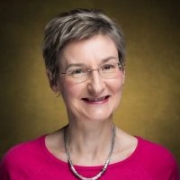 Muffy Calder
Muffy Calder
Co-Investigator
I am the Vice-Principal and Head of College of Science and Engineering and a Professor of Formal Methods. My research is in modelling and reasoning about the behaviour of complex software and biochemical systems using computer science, mathematics and automated reasoning techniques. I have been a Royal Society Leverhulme Research Senior Fellow and held a Royal Society Wolfson Research merit award and a Suffrage Science award in Computing Science and Mathematics. I am Principal Investigator of the EPSRC Programme Grant: Science of Sensor System Software.
I am a member of the Prime Minister’s Council for Science and Technology, UKRI-EPSRC Council and REF 2021 Main Panel B, chair of DCMS Science Advisory Council, and chair of the BCS School Curriculum and Assessment Committee.
Previously, I was Chief Scientific Adviser for Scotland. Before that I was Dean for Research in the College of Science and Engineering and I held various positions including Head of Department, chair of UKCRC (UK Computing Research Committee), Senate Assessor on University of Glasgow Court, member of EPSRC TOP (Technical Opportunities Panel) and co-chair of the Scottish Science Advisory Council. I am a Fellow of the Royal Academy of Engineering, the Royal Society of Edinburgh, and the British Computer Society. I was awarded an OBE in 2011 and a DBE in 2020.
University of Glasgow
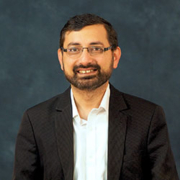 Muhammad Imran
Muhammad Imran
Co-Investigator
I received my M.Sc. (Distinction) and Ph.D. degrees from Imperial College London, UK, in 2002 and 2007, respectively. I am a Professor in Communication Systems in the University of Glasgow, Dean University of Glasgow UESTC, Head of Communications Sensing and Imaging (CSI) research group and Director of Glasgow UESTC Centre of Educational Development and Innovation. I also serve as an affiliate Professor at the University of Oklahoma, USA; Adjunct Research Professor AIRC, Ajman University UAE and a visiting Professor at 5G Innovation centre, University of Surrey, UK.
I have led a number of multimillion-funded international research projects and the “new physical layer” work area for 5G innovation centre at Surrey. I have a global collaborative research network spanning both academia and key industrial players in the field of wireless communications. I have supervised 50+ successful PhD graduates and published over 500 peer-reviewed research papers including more than 100 IEEE Transaction papers.
University of Glasgow
Nishatabbas Rehmatulla
Co-Investigator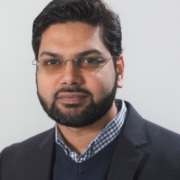
Dr Nishatabbas Rehmatulla is a Principal Research Fellow at the University College London (UCL) Energy Institute, where he has established and leads the social sciences research component of the world-leading multi-disciplinary shipping research group focused on the decarbonisation of shipping. His research focusses on the understanding of barriers to decarbonisation in the shipping sector and exploring solutions, both public and private, to accelerate transitions to a zero carbon industry. He co-leads the group in terms of it’s research direction and strategically, overseeing a portfolio of grant funded research and consultancy projects.
Nishatabbas has a PhD in Energy and Transport – Market failures and barriers affecting energy efficient operations in shipping – from UCL in 2014. He has a BSc in Management and an MSc in Energy, Trade & Finance, both from Cass Business School, City University, London, UK.
University College London
 Paul Harvey
Paul Harvey
Co-Investigator
Paul Harvey is exploring the cross-section of technologies and skills required for safe and meaningful fully-autonomous behaviour of both design and operation in complex distributed systems at the School of Computing Science, University of Glasgow.
University of Glasgow
Simon  Shepherd
Shepherd
Co-Investigator
At the Institute for Transport Studies since 1989, he gained his doctorate in 1994 applying state-space methods to the problem of traffic responsive signal control in over-saturated conditions. His expertise lies in modelling and policy optimisation ranging from detailed simulation models through assignment to strategic land use transport models. Recently he has focussed on optimisation of road user charging schemes and is currently working on aspects of competition between cities. He has applied system dynamics approaches to the transport sector, looking at toll competition between private operators; take up of electric vehicles and strategic modelling where he has been involved in the development of MARS a land use transport interaction model for the last ten years. The most recent application of which was for the Greater Jakarta Transport Authority to aid their master planning process.
University of Leeds
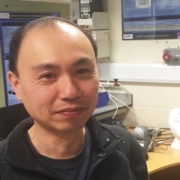 Theodore Lim
Theodore Lim
Co-Investigator
Dr Theodore Lim is an Associate Professor at Heriot-Watt University. With 14 years experience working in industry, Theodore’s research spans profiling non-conventional interfaces and applications for virtual environments and systems. His work covers systems engineering, knowledge engineering, human factors, digital tools, extended reality, and robotics facilitating digital economy and transformation. Digital tools and methods including digital twin computing, serious games, IoT, cyber-physical systems, social digital systems and extended reality remain as primary research interests. His developments in digital manufacturing methods and techniques have been commercialized by world-leading UK CAM and metrology provider. Internationally, with Becker Sonder-Maschinenbau he jointly received the Lanner industrial award on Industry 4.0 digital twinning processes.
Over the years he has been involved with projects that span from consumer products through to large scale industry such as Oil and Gas. He is presently leading a Horizon Europe serious game design and development where the game serves as a digital twin platform for clinical intervention in mental health.
Heriot-Watt University
Tristan Smith
Co-Investigator
Dr Tristan Smith is an Associate Professor in Energy and Transport at University College London. He is also Principle Investigator of the Decarbonising UK Freight Network Plus project, which since 2010 has grown a substantial group focused on modeling and analysis of shipping’s efficiency and emissions. He was Principle Investigator of the RCUK funded Shipping in Changing Climates project, led the 3rd IMO GHG Study, is lead author of ISO 19030, co-chair of World Bank’s CPLC Maritime Thread, and has been involved in numerous projects across the academic, industry and policy domains. The group maintains a number of models including GloTraM, which is used by several multinationals to explore shipping’s future scenarios and technology evolution. Along with Dr Simon Davies, he is co-founder of University Maritime Advisory Services (UMAS).
University College London
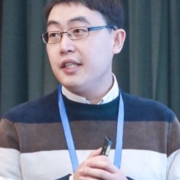 Xiaoxiang Na
Xiaoxiang Na
Co-Investigator
Dr Xiaoxiang Na is a University Assistant Professor in Applied Mechanics at the Department of Engineering, University of Cambridge (CUED). He is a lead investigator with the Centre for Sustainable Road Freight (CSRF). His research interests include condition monitoring of road freight vehicles and buses, vehicle energy performance evaluation, and driver-vehicle dynamics.
Dr Na received his BSc and MSc degrees in Automotive Engineering from the College of Automotive Engineering, Jilin University, China in 2007 and 2009, respectively, before obtaining his PhD in 2014. He worked as a Research Associate and Senior Research Associate at CUED until May 2014 before taking up his current position in July 2023.
Dr Na has authored or co-authored more than 60 peer-reviewed journal papers, and chaired or co-chaired many special sessions and workshops in international conferences. He serves as Associate Editors for IEEE/CAA Journal of Automatica Sinica and IEEE Transactions on Intelligent Vehicles, and co-chairs the Technical Committee on Human-Machine Interface for Connected and Autonomous Vehicles in the IEEE Systems, Man, and Cybernetics Society.
Cambridge University
 Yen Tran
Yen Tran
Co-Investigator
Dr Yen Tran is an Associate Professor of Innovation and Entrepreneurship at the Edinburgh Business School, Heriot-Watt University. Yen’s research interests are within the areas of Innovation Management, International Strategy and International Entrepreneurship (IE-IB). Her current research is focusing on:
(1) Organisational and innovation capability development in response to technological changes.
(2) Entrepreneurial mobility (entrepreneurial knowledge and capability development) in emerging markets (MNC spin offs/employee mobility, knowledge repatriation, returnee entrepreneurship, women entrepreneurship and digital internationalisation strategy).
Heriot-Watt University
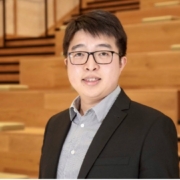 Zhongbei Tian
Zhongbei Tian
Co-Investigator
Dr Zhongbei Tian is an Assistant Professor in Transport Energy Systems Research at the School of Engineering, University of Birmingham. Zhongbei’s research interests include transport energy system modelling and analysis, energy-efficient train control, energy system optimisation, and sustainable transport energy systems integration and management. With over 10 years of experience, he has a strong track record in railway energy systems and now moves to multi-modal transport combining railway, road, and maritime for passenger and freight. He has published over 90 high-impact papers and led a range of projects funded by EPSRC, Royal Society, Network Rail, RSSB, and Innovate UK.
University of Birmingham
 Alan Logan
Alan Logan
Researcher
Dr Alan Logan is an Assistant Professor of Sustainable Logistics at Heriot-Watt University. He is a mathematician by training, and primarily works on the Data Science aspects of the project.
Heriot-Watt University
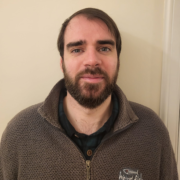 Alex Foote
Alex Foote
Researcher
Dr Alex Foote is a Research Associate at Heriot-Watt University. He is a physicist by training but has industry experience of modelling and data science techniques. His research is focussing on the development of digital twins for decarbonisation.
Heriot-Watt University
Chen Liu
Research Student
Chen Liu is a PhD student at the Centre for Sustainable Road Freight, University of Cambridge. He is working on the modelling of severe abrasive truck tyre wear under the supervision of Prof. David Cebon. Chen holds a Bachelor of Engineering from Tsinghua University.
University of Cambridge
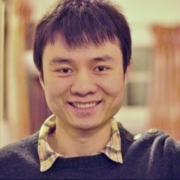 Chongfeng Wei
Chongfeng Wei
Researcher
Dr Chongfeng Wei is an Associate Professor (University Senior Lecturer) at James Watt School of Engineering within the University of Glasgow. Chongfeng’s research is focused on how to make future intelligent vehicles and robots interact with humans and complex environments naturally and effectively. With a background in both engineering and human factors, his research interests cover some interdisciplinary areas including autonomous vehicle collective perception and decision-making, dynamic system design and control, human factors in transport, human-robot interaction, and AI in engineering.
He also serves as an Associate Editor of IEEE TITS, IEEE TVT, IEEE TIV, IEEE OJ-ITS, and Frontiers on AI and Robotics.
University of Glasgow
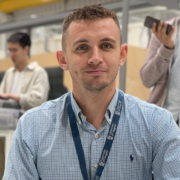 Daniel Mitchell
Daniel Mitchell
Researcher
Dr Daniel Mitchell is a Research Associate at the University of Glasgow. His research in symbiotic autonomy for robotics has led to a number of awards, including: IET Rising Star of the Year (2023), Rising Star of the Year in Cyber Physical Systems awarded by the University of Virginia (2024) and Sir Alan Stirling Brown Award for outstanding postgraduate research (2024). Daniel graduated from his PhD at the University of Glasgow in 2024 where he had also taken up a visiting student researcher position at the California Institute of Technology (Caltech).
University of Glasgow
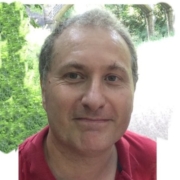 David Cole
David Cole
Researcher
David is a Software Engineer and Systems Thinker. He is experienced in the design and development of cloud deployed microservice software architectures across the full development stack. David has a postgraduate certificate in Systems Thinking in Practice and is pursuing an MSc in Systems Thinking in Practice at the Open University.
He currently works for Heriot-Watt University and the Global Research, Innovation and Discovery Centre (GRID), exploring systemic solutions to the climate crisis empowered with digital technology.
Heriot-Watt University
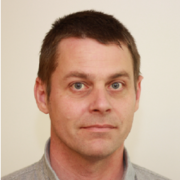 David Kirkwood
David Kirkwood
Researcher
Dr David Kirkwood is a Research Fellow at the University of Birmingham. David’s background is software development with a focus on Object-Oriented modelling for railway simulation applications. His professional experience includes simulating Air Traffic Control systems and railway networks, whilst his research background includes the testing of the application of railway traffic management algorithms to railway networks; the integration of railway simulation software with external hardware and software systems; and validation of timetabling and network resilience.
University of Birmingham
 Filip Holik
Filip Holik
Researcher
Dr Filip Holik is a Research Associate at the University of Glasgow, where he is responsible for research in programmable networks for critical infrastructure. Filip holds a PhD in Electrical Engineering and Informatics from the University of Pardubice (Czechia) where he specialized in OpenFlow-based software-defined networks and their security applications in IoT networks. Prior to joining the University of Glasgow, Filip worked as a researcher at the Norwegian University of Science and Technology (Gjøvik, Norway) where he was responsible for developing a simulator of digital substations with emulated communication for cybersecurity awareness. Filip maintains an external Associate Professor position at NTNU where he supports a computer network security course.
University of Glasgow
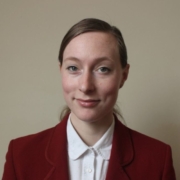 Heather Steele
Heather Steele
Researcher
Dr Heather Steele is a Research Associate at Durham University, with broad-ranging expertise in modelling, simulation and data analysis for railway systems. Her core interest is in how digitalisation through the railway lifecycle – from system design through testing and into operations – can contribute to sustainability. Over the past 10 years, she has collaborated with various industry partners to help inform system improvements and future strategy. This includes work on: synthetic environments; timetabling; system testing verification and validation; condition monitoring; operational performance analysis; energy efficient train control.
Durham University
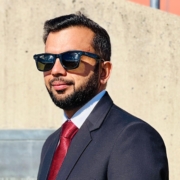 Irfanullah Khan
Irfanullah Khan
Researcher
Dr Khan is a Research Associate at the University of Glasgow, contributing to the TransiT project focused on innovative transport solutions. He holds a Ph.D. in ICT from the University of Calabria, Italy, with expertise in energy efficiency, digital twins, and data-driven research methodologies.
University of Glasgow
 Jamie Blanche
Jamie Blanche
Researcher
Dr Jamie Blanche is a Research Associate at University of Glasgow working on engagement with key hydrogen economy stakeholders via 1-to-1 meetings, focus groups and workshops to understand the integration barriers for the hydrogen economy.
University of Glasgow
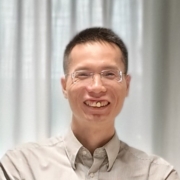 Jianglin Lan
Jianglin Lan
Researcher
Dr Jianglin Lan is a Leverhulme Early Career Fellow and Lecturer in the Division of Autonomous Systems and Connectivity, University of Glasgow since 2022. His research focuses on safe artificial intelligence, fault-tolerant systems, intelligent transportation systems, and robotics. His research is featured in a monograph, over 50 journal and conference papers, and an international patent. He also holds the positions of Honorary Research Fellow at Imperial College London, Visiting Professor at Carnegie Mellon University, and Visiting Scientist at Wageningen University and Research. He is an editor for the International Journal of Adaptive Control and Signal Processing and the Publication Chair for the 45th IEEE International Conference on Distributed Computing Systems.
University of Glasgow
 Jo-Ann Pattinson
Jo-Ann Pattinson
Researcher
Dr Jo-Ann Pattinson is a Postdoctoral Research and Impact Fellow at the Institute for Transport Studies, Univeristy of Leeds. She specialises in the regulation of new technology and transport policy.
University of Leeds
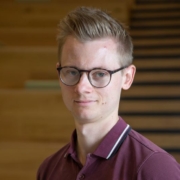 Joseph Preece
Joseph Preece
Researcher
Dr Joe Preece is a Research Fellow at the Birmingham Centre for Railway Research and Education (BCRRE), where he focuses on the convergence of computer science and the railway industry. His research explores the application of nascent technologies and techniques, including the use of blockchain for smart ticketing systems, leveraging machine learning techniques to predict track geometry degradation, and employing data science methodologies to extract key insights in the transport sector.
Univeristy of Birmingham
 Meg Bartholemew
Meg Bartholemew
Researcher
Meg Bartholomew is an urban professional with extensive experience in city shaping projects, particularly in the application of transformational technology towards better futures. Her direct skills include the application of analytics and machine learning to address urban issues, including transport. She joins the team as a Research Fellow, assisting with stakeholder engagement, focus groups and workshops and synthesis of the resulting insights.
Heriot-Watt University
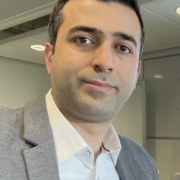 Mohammad Alquraan
Mohammad Alquraan
Researcher
Dr Mohammad Alquraan is a Research Associate at the University of Glasgow who has participated in many successful projects, including PECN and SODOR. He brings a decade of industrial experience in networking, telecommunications, and network security. Additionally, he has extensive research experience in artificial intelligence, with a focus on using federated learning to address complex problems in diverse domains such as beyond 5G wireless networks and smart grids.
University of Glasgow
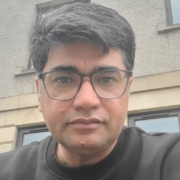 Muhammad Shujaat Mubarik
Muhammad Shujaat Mubarik
Researcher
Dr Muhammad Shujaat Mubarik is Associate Professor (Logistics and Supply Chain) and Head of Research (Marketing & Operations Dpt) at Edinburgh Business School. Dr. Mubarik focuses on the strategic integration of human resources and emerging digital technologies to foster sustainable and resilient supply chains. His research is partly rooted in the concept of intellectual capital – the aggregate of human, relational, and structural capital of an organization – and its pivotal role in enhancing the resilience and sustainability of supply chains, particularly in the face of global challenges such as the COVID-19 pandemic.
Heriot-Watt University
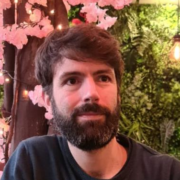 Ricardo Almeida
Ricardo Almeida
Researcher
Dr Ricardo Almeida is a Research Associate at the University of Glasgow, with a background in theoretical Computer Science and formal methods. He completed his PhD on automata theory at the University of Edinburgh in 2017, and has since worked as an R&D Researcher in industry building next-generation digital-triggering solutions based on formal languages, and as a Research Associate in formal verification of system software at the University of Edinburgh.
University of Glasgow
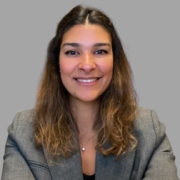 Sandy Hassan
Sandy Hassan
Researcher
Dr Sandy Hassan is an Assistant Professor of Logistics and Supply Chain Management at Edinburgh Business School, Heriot-Watt University. She received her PhD in Management from the University of Hull in 2023, with a thesis focused on environmental sustainability in global logistics hubs. Her research interests include environmental logistics and transport, sustainable development, risk management, and resilience.
Heriot-Watt University
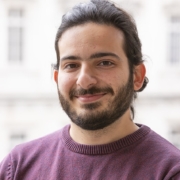 Stefanos Evripidou
Stefanos Evripidou
Researcher
University of Glasgow
Susmoy Das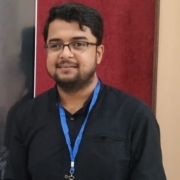
Researcher
Dr Susmoy Das is a Research Associate at the University of Glasgow. His research interests lie in formal modeling and verification/prediction of digital twins.
University of Glasgow
Wenjing Zhao
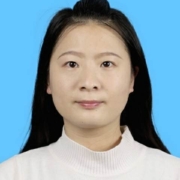
Researcher
Dr Wenjing Zhao is a Research Associate at the University of Glasgow. Prior to joining Glasgow, she was a Postdoctoral Fellow at the Hong Kong Polytechnic University. Her research interests include Human Factors and Connected and Automated Vehicles.
University of Glasgow
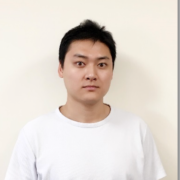 Wenshuo Tang
Wenshuo Tang
Researcher
Dr Wenshuo Tang is a Research Associate at the University of Glasgow. His research interest lies in the application of AI, digital technologies, and advanced sensing methods for multi-objective optimization within energy and transportation systems. His expertise extends to asset health management and prognostics. He has previosuly led government and industry-funded research initiatives, such as the Hybrid Fusion Energy System and Holistic Operation and Maintenance for Energy from Offshore Wind Farms.
University of Glasgow
Xicheng Li
Researcher
Xicheng Li is a Ph.D. student in School of Computing Science at University of Glasgow. He received his bachelor’s degree in software engineering from University College Dublin. His research focuses on software-defined networks and programmable data planes, with a particular emphasis on utilising programmable switches to offload generic network services.
University of Glasgow
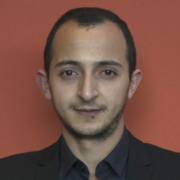 Yanis Boussad
Yanis Boussad
Researcher
Dr Yanis Boussad is a Research Fellow at the Institute for Transport Studies, University of Leeds. He completed his PhD in Computer Science from Côte d’Azur University / Inria in France in 2021. His research interests revolve around computational modelling and simulations, applied data science, mobile computing and IoT, and wireless technologies.
University of Leeds
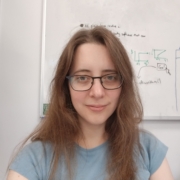 Zoe O’Connor
Zoe O’Connor
Researcher
Dr Zoe O’Connor is a Research Associate in the Centre for Logistics and Sustainability at Heriot-Watt University. She is responsible for the development and maintenance of mathematical models for sustainable logistics operations.
Heriot-Watt University

